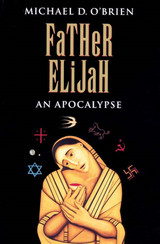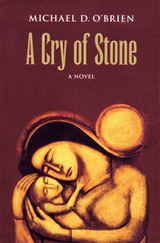Product Overview
Sophia House is set in Warsaw during the Nazi occupation. Pawel Tarnowski, a bookseller, gives refuge to David Schäfer, a Jewish youth who has escaped from the ghetto, and hides him in the attic of the book shop. Throughout the winter of 1942-43, haunted by the looming threat of discovery, they discuss good and evil, sin and redemption, literature and philosophy, and their respective religious views of reality. Decades later, David becomes a convert to Catholicism, and is the Carmelite priest Fr. Elijah Schäfer called by the Pope to confront the Anti-Christ in Michael O'Brien's best-selling novel, Father Elijah: an Apocalypse.
In this "prequel", the author explores the meaning of love, religious identity, and sacrifice viewed from two distinct perspectives. The cast of characters also includes the notorious Count Smokrev, a literate Nazi Major, a French novelist, a terrifying Polish bear, the Russian icon painter Andrei Rublev, and Pawel's beloved Kahlia, the elusive figure who moves through the story as an unseen presence. As the story unfolds, the loss of spiritual fatherhood in late Western society is revealed as a problem of language in the heart and soul, and as one of the gravest crises of our times. The story points the way to rediscovery of our Father in heaven, and also shows us the path to renewal of human fatherhood. This is a novel about small choices that shift the balance of the world.
Editorial Reviews
"Michael O'Brien is a superior spiritual story teller worthy to join the ranks of Flannery O'Connor, Graham Greene, Evelyn Waugh, and C. S. Lewis."
— Peter Kreeft, Ph.D., Author, Because God is Real
"If you, like me, rate Michael O'Brien the best contemporary Catholic novelist of the North American Continent, then you will very likelyalso think that Sophia House is his masterpiece."
— Ronda Chervin, Ph.D., Author, Avoiding Bitterness in Suffering
"O'Brien paints with a vast palette that brings the reader into his world . . . weaving a tapestry of Christian and Jewish themes that emerges as a poetic story of salvation."
— Marty Barrack, Author, Second Exodus







